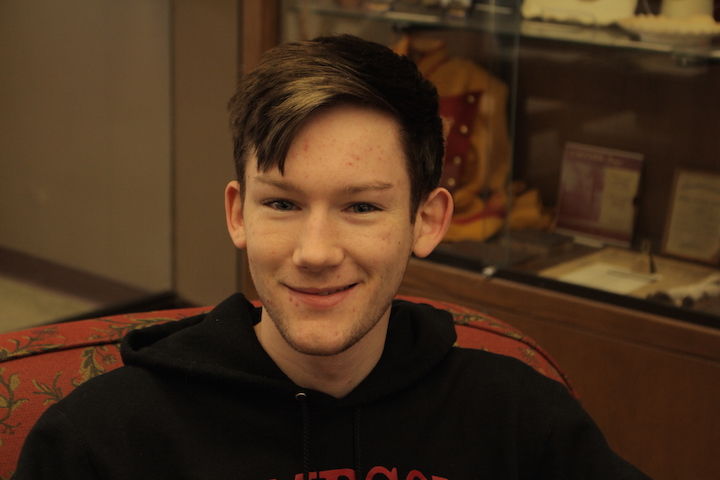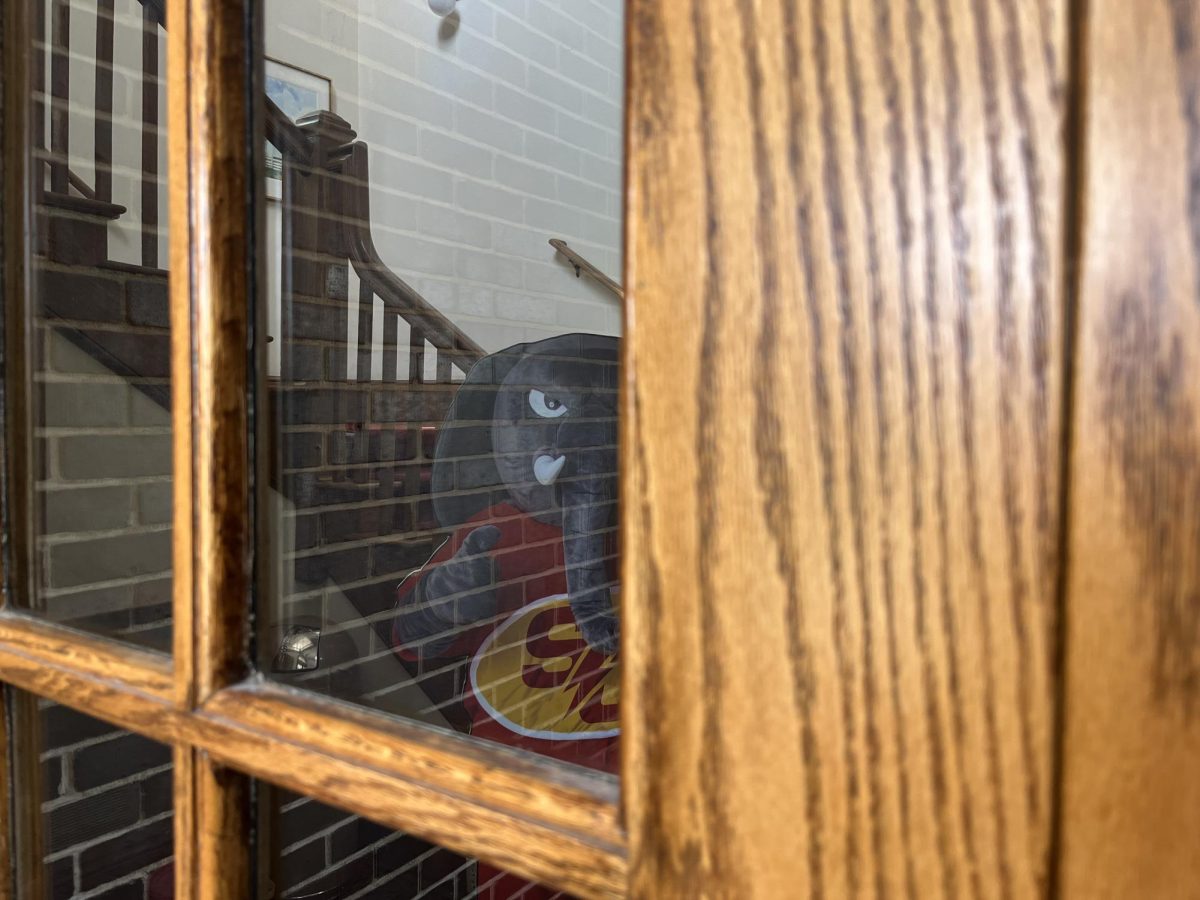Student shares experience as pansexual
February 17, 2015
College is all about finding oneself. This is exactly what Noah Peters, freshman at Simpson College, has been trying to do ever since they came out as a pansexual, identifying themselves as non-binary and finding their faith in Buddhism.
Pansexuality refers to a sexual attraction to members of any sex or gender identity, while non-binary genders reject the notion of being male or female. Thus, Peters prefers the pronoun “they” in lieu of “he” or “she” as grammatical acceptance of the gender-neutral pronoun has become more widespread.
Facebook also has recently introduced more than 50 gender identity options, to which Peters says is good for the social media website to recognize genders other than “male” and “female.”
At first, Peters was conflicted and thought they might be bisexual until reading and researching more on pansexuality and felt that was a better description. Peters says they didn’t want to be different for fear of ridicule, mockery and rejection.
“It wasn’t until sophomore year of high school that I started to get the vibe that I was different than many of my friends. [It] was a very confusing stage in my life,” Peters said.
“There were lots of challenges, including personal ones where I didn’t want to acknowledge [my sexuality]. I wanted to be normal. I wanted to fit in. I wanted people to accept me. That put me in a shell where I didn’t know what I was going to end up, but I had a lot of friends help me,” Peters said.
Peters is now open and proud of being pansexual, coming out to their friends, most of the people they meet and recently their mother. Their response, Peters laughs, was a short, “You think I didn’t know?”
Peters hasn’t come out to their father, however, citing disagreement on world views as a reason. They fear he wouldn’t accept it [pansexuality] as an appropriate lifestyle and still faces fear of rejection.
They do acknowledge, however, that there is a high probability that their father already knows.
In identifying as a pansexual and non-binary, Peters rejects the societal norms associated with typical male and female binaries — feminism, sexism, etc.
Because pansexuals do not view themselves as having strictly male or female characteristics, the idea of gender inequality is rendered irrelevant.
Ultimately, Peters wants to find peace and tranquility without repercussion of societal standards.
Previously a Christian, Peters converted to Buddhism during freshman year. They say the Buddhist philosophy has changed day-to-day living by abiding by the Four Noble Truths — the truth of suffering, the truth of the cause of suffering, the truth of the end of suffering, and the truth of the path that leads to the end of suffering.
“The main philosophy behind Buddhism is that life is suffering, and that sounds really pessimistic, but the reason we suffer is because we’re attached. So, I’ve tried my best to become unattached… and it’s definitely changed the way I interact with people. I just see people being mad and angry all the time,” Peters said.
Peters says through the Four Noble Truths, happiness can be achieved by detaching oneself from earthly possessions including food, friends, relationships and emotions.
“When you become unattached to things, you realize that you never needed to be attached to them in the first place,” Peters said.
As a reference from popular culture, Peters says this concept was explicitly demonstrated in the television show, The Legend of Korra, when the villain, Zaheer, loses the love of his life, P’Li, he gains the ability to fly, quoting the fictitious Guru Laghima: “Let go your earthly tether, enter the void, and become wind.”
In discovering Buddhism, Peters says that their views were widened, and as a result, have been instrumental in discovering they are non-binary and pansexual.
Peters says that the Simpson community has been extremely supportive, saying that the institution is warm and welcoming of diverse and eclectic students.
Ellie Olson, Director of Counseling Services, said if someone were to define themselves as a pansexual, support is necessary in finding one’s identity.
“The fact that we do, in our culture, operate on such a black and white/male and female way of thinking about sexual orientation and gender identity and that dichotomy of taking to these issues really inhibits people’s ability to explore,” Olson said.
“There is growing evidence,” Olson points out, “that suggests that some people might have fluid sexual attractions, so at one point in their life might be more attracted to females but maybe more slightly attracted to males. Perhaps later in their life, that attraction might switch.”
Peters says that they genuinely want to see people happy with whomever they choose to be.
“I’m different, and that’s not bad. We’re all humans, we’re all different. There’s something different in each of us,” Peters said.






